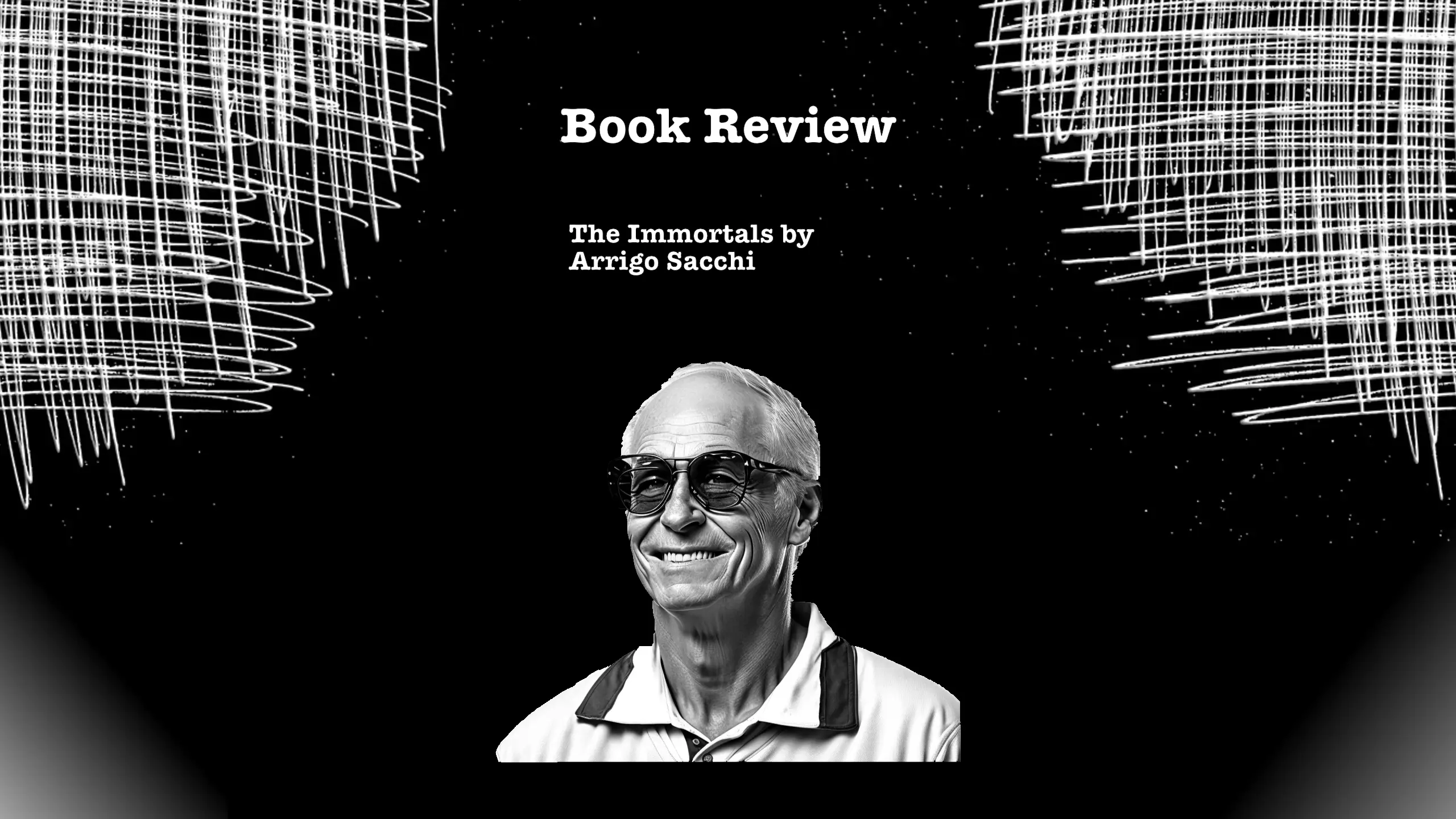In The Immortals, Arrigo Sacchi becomes both storyteller and historian, guiding readers through his first transformative season with AC Milan. The book’s distinctive feature is Sacchi’s Smemoranda diary — a personal journal he claims to have kept throughout his tenure. It documents not only his training plans but also the mental, tactical, and philosophical reflections following each match.
Sacchi’s mindset, captured in this memoir, redefined modern football. For him, victory alone was never enough — it had to be achieved beautifully, through collective intelligence and discipline. As he famously summarized:
“If we play well, we win.”
Key Ideas
1. From cunning to conviction
As a boy, Sacchi experienced a formative moment during a trip to Germany with his father. He realized that the Italian admiration for cunning and opportunism did not necessarily lead to excellence. In football terms, this meant rejecting defensive traps and reactive play. Instead, Sacchi envisioned a team defined by hard work, ideas, and proactive movement — a side that attacked even in defense.
(p. 11–12)
2. The birth of pressing football
Sacchi made pressing the central tenet of his philosophy. He emphasized initiating pressure from the opponent’s goal, minimizing the distance to score once possession was regained. “The closer you are to their goal,” he wrote, “the farther they are from yours.” This logic established a new tactical order built on proximity, pressure, and positional compactness.
(p. 31–32)
3. Energy through efficiency
The beauty of Sacchi’s model was in its efficiency. By maintaining numerical superiority near the ball, players could run less but achieve more. Compactness reduced the opponents’ passing options and preserved collective energy — an early blueprint for today’s high-pressing systems.
(p. 31–32)
4. Continuous aggression and emotional intensity
One of Sacchi’s guiding values was “continuous aggression.” He demanded unwavering intensity — physical and emotional — from his players. If post-training heart rates weren’t high enough, players were sent to run additional drills so that in the next session they would “make more effort.”
(p. 33–34)
5. Correcting mistakes through themed training
To refine performance, Sacchi implemented themed training games to target specific weaknesses:
- To reduce long balls → keep the ball on the ground
- To quicken play → two-touch rule
- To exploit width → mandatory crosses before scoring
These creative constraints developed automatic tactical behaviors and mirrored match intensity.
(p. 36)
6. Relentless reflection and pursuit of perfection
Sacchi’s diary reveals a man obsessed with improvement. After every match on the path to the European Cup final, he identified specific lessons and details to refine. Each observation reflected his belief that football progress lies in small, continuous adjustments.
(p. 60)
7. Automatism — the invisible art
When Arsène Wenger visited Milan, club president Silvio Berlusconi feared that Sacchi’s ideas might be stolen. But Sacchi noted that the true secret was not in the drills, but in the automatism — the instinctive understanding players developed through repetition.
“What gave us strength were those automatisms, those internalised understandings made instinctive by two years of work.”
(p. 117–131)
8. The European Super League that never was
Sacchi recounts early discussions with Berlusconi about a European Super League — an idea already under consideration in the late 1980s. He recalls the season as one filled with pressure and controversy, including disallowed goals and biased officiating. The proposal, he argued, failed because:
“The existing national leagues would lose prestige, while UEFA would miss out on a large amount of money.”
(p. 120)
9. Conversations with Mancini: Leadership beyond tactics
When Roberto Mancini sought advice on reducing boardroom interference, Sacchi’s response was simple:
“Start your conversations with directors by discussing the game’s principles, not individual players — because they don’t have the knowledge to keep up.”
(p. 144–145)
Selected Citations from The Immortals
- “How low must a player’s self-esteem be if he is completely removed from the construction of play?” (p. 14)
- “‘Ideas’ meant communicating in the quickest and clearest way possible… ‘Hard work’ meant building a culture of generosity and sacrifice.” (p. 27)
- “Without a script, there can be only improvisation and carelessness.” — Bertolt Brecht, cited by Sacchi (p. 37)
- “Even the most successful actors need other actors to express their ability to the full.” — Bertolt Brecht, cited by Sacchi (p. 37)
- “Don’t just watch him train. Watch how he behaves off the pitch — where and what he eats.” (p. 46)
- “For me, a player’s hierarchy of interests must be: teammate, ball, and lastly, opponent.” (p. 54)
- “To show Marco [van Basten] the right pressing position, I had to shout into a megaphone a thousand times — and draw a diagram another thousand.” (p. 75)
- “Yugoslavian football has had great champions but rarely great teams, because they never transformed talent into collective strength.” (p. 81)
- “You might only face one shot per match, but when it comes, you must be ready.” (p. 102)
- “Tactics without strategy are for losers.” (p. 111–112)
- “I wanted every training match to be like a real game — with everyone bringing the same effort and grit.” (p. 139)
Academic Reference
Sacchi, A., & Garlando, L. (2021). The Immortals. Great Britain: Backpage / MBM Print.
References
Next review: I Think Therefore I Play by Andrea Pirlo with Alessandro Alciato.
